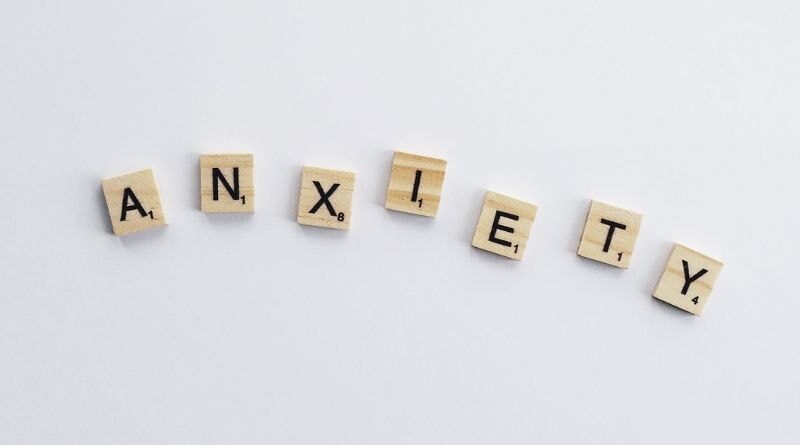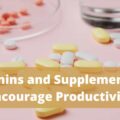What Vitamin Should I Take for Anxiety?
Are you wondering what vitamins to take for anxiety?
Anxiety is a natural human emotion that most people experience at some point in their life. Anxiety can be debilitating, but there are many ways to treat it.
One of the easiest ways to overcome anxiety and depression is by taking vitamins and supplements.
Vitamins and supplements are what you take when you need extra help with health problems or deficiencies.
It is hard to know what supplements will work best because everyone has different needs. Luckily we have compiled a list of what vitamins and supplements that may help relieve your symptoms.
This blog post will explore what vitamins may help with anxiety and what supplements work best for this condition!
Table of Contents
Biological Factors That Can Lead to Anxiety
Anxiety is a debilitating mental illness that can lead to panic attacks, high-stress levels, and insomnia.
While there are many natural remedies for anxiety, what vitamin should I take for anxiety?
It’s important to know what may be causing your symptoms before taking any supplements or vitamins.
1) Low serotonin levels
Serotonin is the brain chemical responsible for feelings of happiness and well-being. When serotonin levels drop too low, you will experience depression, low self-esteem, and problems with sleep.
2) Low Vitamin B- Levels
Vitamin B is a critical vitamin that aids in the functioning of your brain. Vitamin B6 is required for the body to produce serotonin.
Low vitamin B6 levels cause lower levels of serotonin in the brain. Depression, psychosis, tiredness, and memory loss are all symptoms of low vitamin B levels in the body.
3) Low iron level
There is a link between iron deficiency and anxiety because of its connection to dopamine – one of the neurotransmitters in the brain that makes us happy. Dopamine is made in the brain with the help of iron.
Our bodies produce dopamine by combining tyrosine from protein-rich meals with iron, which activates it. Low levels of dopamine can lead to depression, anxiety, and movement disorders like restless leg syndrome.
Read: Management Tips for Depression
Best Vitamins for Anxiety
Food has a huge impact on your mood.
A nutritional deficiency can aggravate mental health issues, but a nutritionally complete diet might help relieve symptoms.
Vitamins that are found in natural foods have been shown to aid in the reduction of anxiety. While most natural vitamins are available in supplement form, they are more effectively absorbed when consumed as part of a whole meal.
Here are the best vitamins for anxiety.
1) Omega 3 fatty acids
Omega 3 fatty acids are found in many forms, but two of the most important are DHA and EPA.
DHA is vital for the production of serotonin, a hormone that helps to regulate our mood naturally. Healthy production and regulation of serotonin can reduce your risk of anxiety and stress and bipolar disorder.
Foods with high Omega 3 content:
- walnuts
- flax seeds
- salmon
- tuna
- sardines
- mackerel
- anchovies
- lake trout
- herring
2) Vitamin D
Exposure to the sun can help alleviate anxiety and depression by triggering vitamin D production in your skin cells. This means it may be beneficial to spend more time outdoors, especially during the summer months.
Foods with high Vitamin D content:
- cod liver oil
- swordfish
- salmon
- tuna fish
- egg yolks
- milk
- cereal
3) Zinc
Zinc plays a significant role in over 200 enzymatic processes that occur within the human body, which means it has an impact on how you think and feel every day.
- Zinc is important for the synthesis of neurotransmitters, also known as your happy hormones – such as serotonin and dopamine.
- Zinc is essential for the maintenance of a healthy nervous system, especially as it pertains to the vagus nerve, which connects the brain to the body and transmits messages of “calm.”
- When you’re feeling overwhelmed with stress or worry, your body consumes your zinc stores faster in order to keep your nervous system healthy and to keep you in a state of calm.
Because anxiety is linked to inflammation in the body and mind, you may manage inflammation in your body and brain by getting enough zinc.
Foods rich in zinc include:
- Oysters
- Kidney shaped beans
- eggs
- spinach
- lentils
- cashews
- Pumpkin seeds
- mushroom
- Sunflower seeds
4) Iron
The brain needs iron to make dopamine. Low iron levels might lead to anxiety since they are associated with dopamine, one of the brain’s neurotransmitters that cause people to feel good.
An iron deficiency can also lead to poor concentration and irritability.
Foods rich in iron:
- chicken
- beef liver
- turnip greens
- kelp seaweed
Read: Vitamins and Supplements to Encourage Productivity
5) Magnesium
The brain needs magnesium for many functions.
- Magnesium has a calming impact on the brain by binding with GABA (gamma-aminobutyric acid), a neurotransmitter that reduces the activity of neurons in the brain that helps relax our nervous system, and helps promote sleep.
- It also affects melatonin, the hormone that regulates sleep-wake cycles in the body, and relaxes muscles to enable deeper sleep.
- Magnesium has a role in the brain, specifically the hypothalamus, which regulates the pituitary and adrenal glands. These glands are responsible for your response to stress.
Foods high in magnesium:
- leafy greens like spinach or kale
- avocado
- dark chocolate
- almonds
- cashews
- legumes
- whole grains
- nuts
- seeds
6) B Vitamins
The major role of B vitamins:
- B Vitamins help convert food into fuel.
- Help produce neurotransmitters which are what send messages from one cell to another that affect mood, sleep and calm the nervous system.
- helps the body create DNA
All B vitamins are essential for alleviating anxiety and improving your mood, but vitamin B12 is particularly helpful in managing your emotions.
- Vitamin B12 aids in neurotransmitter synthesis, including acetylcholine – associated with learning and memory and dopamine – the feel-good chemicals
- Vitamin B12 aids in the production of the myelin sheath, which surrounds nerve cells in your brain. Myelin is what insulates our nerves, sending messages between cells.
B12 deficiency can lead to poor memory, low energy levels, and irritability—all of which are associated with anxiety in some way or another.
Best food sources for B Vitamins:
- Lean poultry, such as turkey or chicken
- pork
- beef
- eggs
- yogurt
- carrots
- green leafy vegetables
- Salmon, tuna fish
- Shellfish like clams, mussels, and crab
- Fish, especially Atlantic mackerel and salmon
7) Vitamin C
This antioxidant plays a vital role in maintaining homeostasis or balance in your central nervous system.
Chronic anxiety leads to elevated levels of cortisol- a stress hormone linked with a higher risk of diabetes and many other diseases. Vitamin C can help your body to better manage its cortisol levels.
Taking a vitamin C supplement may improve your mood and reduce anxiety
Best food sources for Vit. C
- Citrus fruits
- Colorful vegetables, such as red bell peppers
- Tomatoes
Read: Foods That High In Vitamin C
8) L-Theanine
L-theanine is an amino acid found in green and black tea.
Studies show that L-theanine reduces the symptoms of anxiety by promoting alpha wave activity which induces a state of deep relaxation while maintaining mental alertness.
L-Theanine also aids in the production of GABA, a neurotransmitter. When GABA levels rise, dopamine and serotonin levels in the brain rise, resulting in general feelings of calm and well-being.
Best sources for L-theanine:
- Green Tea
- Black tea
Best Supplements for Anxiety
Valerian root
This is commonly known as the sleep aid and works to ease insomnia and anxiety. This herb can increase the levels of a chemical known as (GABA) in the brain. GABA contributes to a calming effect in the body. This is available in capsule, liquid form, or tea.
Licorice root
Licorice has anti-anxiety and anti-stress qualities by regulating cortisol production, soothing the body’s defenses against stress, and reducing anxiety symptoms.
Chamomile
The dried flowers are what this herbal remedy comes from and it has been known to soothe anxious feelings through its sedative effects.
Lavender
This herb works as a sedative, antidepressant, and anti anxiety remedy that has been used for centuries to treat stress-related conditions such as anxiety and insomnia. It is believed that lavender oil may work by reducing the levels of cortisol in the body which helps relieve nervous tension.
Lemon balm (Melissa officinalis)
Lemon balm is used to ease stress, help you relax, and boost your mood. It contains chemicals that have a soothing and relaxing effect, according to some studies.







